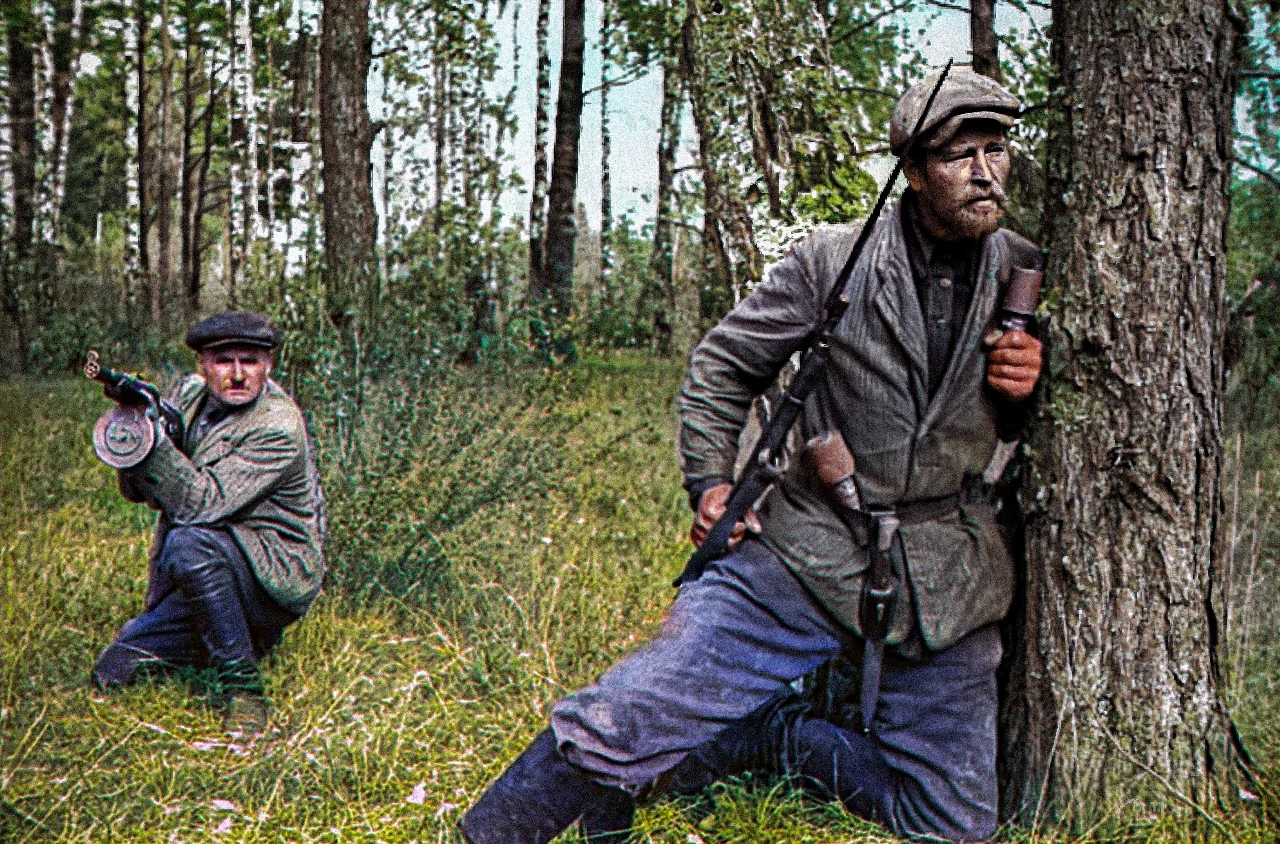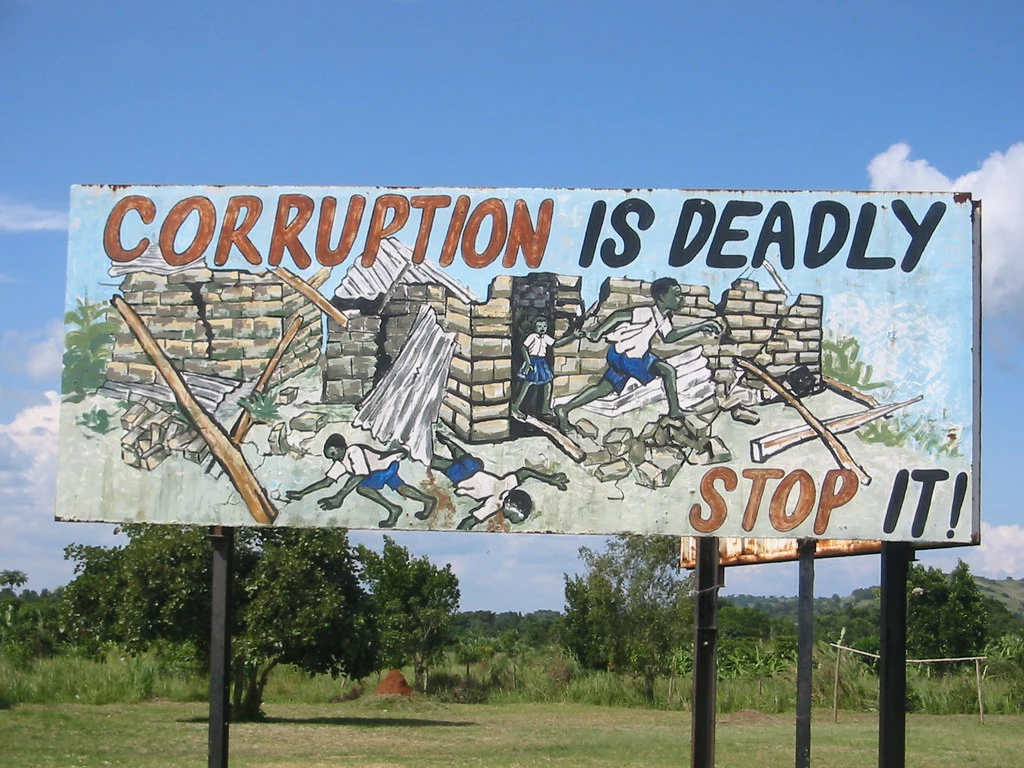I.
Once, like many intellectuals, I made the mistake of distancing myself from Nature, believing what mattered most was only ideas, books, and meeting up with others of like mind. I was certain I had the answers regarding the force of violence in the resistance against the imperialist forces which emerge out of the bowels of capitalism. With this ignorance at my disposal, which I cultivated over the years in the most neurotic ways, I had eventually forgotten what it was like to wander through woods or forests to comprehend it was Nature that could complete my education in understanding the more subtle aspects of armed struggle in the political sense of the word.
When I ran along country roads in Kansas and later in Vermont or when I ran daily on Les Plaines d’ Abraham in Quebec City during the first year of the plague, or even during my very early morning runs along the Seine in Paris, I admit I was numb to the trees, the various plants born out of sunlight and earth; nor did I actually observe the hundreds of birds nor the various small animals I encountered along my runs during the spring, summer, autumn and winter. I was detached and disconnected. I did not see and perhaps I did not want to see how I perceived technology to be the supreme example of how one could live in harmony. My relationship to Nature was abstract.
Not until the Vietnam War, known to the Vietnamese as the American War, did I subconsciously begin to perceive how men and women could use Nature to their advantage in waging war against an oppressor, whomever that may be. I read and saw films and videos of men and women living in mountain caves, in underground shelters carved out of the earth by hard manual labor; I was astounded by how The People's Army of Vietnam (PAVN; Vietnamese: Quân đội Nhân dân Việt Nam), also known as the Vietnamese People's Army (VPA), endured like the Viet Cong the most miserable conditions among the dense foliage and rapacious animal predators in the jungles of their own country. Later, when pursuing my graduate studies, I read how the Soviet Partisans endured deprivation in the forests of Russia and the Ukraine, being creative in the way they utilized the various components of Nature like the rivers, mountains and deep ranges of forests to their advantage. Then, like an epiphany in old age it struck me that Nature was the school of understanding--the Nature of harmony and violence in all its subtle aspects.
War is a mirror of Nature. The various weaponry and the men and women who utilize the weapons are themselves integrated within the complicated forces of Nature in its most subtle aspects. Whether the battlefield is on the earth, under the seas with nuclear submarines and the most advance oceanic weaponry, or in the skies with the latest fighter jets, bombers, drones and satellite killers, the friction of war and the ability to overcome an adversary will go to that military force that does not go against the forces of Nature, but instead utilizes the various weather conditions, topography, and camouflage that Nature has to offer us. Maskirovka is also a part of the essence of Nature, whether that deception be on the battlefield, in intelligence gathering or even utilized in a personal way.
There are mistakes to be made in romanticizing Nature and what it has to offer. Henry David Thoreau in his youth romanticized Nature, thinking one in an eccentric way could live alone within the confines of Nature with all its sublime beauty. Such a vision appears in his essay, Concord River:
Why should not our whole life and its scenery be actually thus fair and distinct? All our lives want a suitable background. They should at least, like the life of the anchorite, be as impressive to behold as objects in the desert, a broken shaft or crumbling mound against a limitless horizon. Character always secures this advantage, and is thus distinct and unrelated to near or trivial objects, whether things or persons.

It was after the courageous insurrection by John Brown, in which his small but committed army struck at Harpers Ferry in support of the abolition of slavery in the United States, that Thoreau realized and matured as a man and intellectual to the harsh reality that if you want “a suitable background” in life, you have to fight for it, since it is not given to you. Thus, Thoreau was able to understand how Resistance does not always come through a passive form of non-violent action when the most formidable Resistance against a political oppressor is required. There comes a time when one must dispense with the most decadent and meaningless objects, such as technological toys which distract us as to why we live, and when we must also rid ourselves of the most abusive and insidious riff-raff of humanity.
The dialectic of the soil is one of nurturing and the literal entrenchment of human violence. The violent struggle against an oppressor is part of the human condition, embedded within the very soil and other forms of Nature which sustain a people. “Land, Bread and Peace”, brilliantly coined by Lenin, is within the dialectical base of Nature, and is not won except by political agitation and militant Resistance. Even the modern Italian Marxist intellectual Domenico Losurdo knew this--Thoreau advocated non-violence within the bounds of Nature which always exhibits some form of violence. The American New Englander who could write so brilliantly, and could also swing words like an axe upon paper with great force. And so, Losurdo would write about Thoreau’s violent standards:
More measured, perhaps, was Henry David Thoreau, who distinguished himself from the bulk of the pacifist movement, assumed secular accents and was inclined to a pagan cult of Nature. At the time of the Mexico’s invasion by the United States, Thoreau had likewise called for resistance to war and slavery. One could not remain passive: “when the sixth of the population of a nation has undertaken to be thew refuge of liberty and slaves, and a whole nation unjustly overrun and conquered by a foreign army, and subjected to military law, I think that is not too soon for honest men to rebel and revolutionize”.
However, as Losurdo pointed out, Thoreau did not have the strength to invoke civil war, but only a militant form of civil disobedience which has its severe limitations and can acquire a form of imminent class, social and political contradictions. The rules of Nature are otherwise, as the teachings of Nature can be harsh and a failure to understand her boundaries within the arch of living in an environment both “fair and distinct” can bring one to ruin— if you are a poor farmer or olive grower living in a nation-state, such as India, Bangladesh, Peru or another Central American country, Brazil, Mexico, Lebanon, Iran, Syria, or the colonized lands of Gaza or the West Bank. There, among the fields of those various countries, you will not always find the most modern farming vehicles or irrigation technology. If you look up, you may find dry skies that bring no rain as well. Finally, the catastrophe of climate change has and will for centuries continue to have its effect on crops, on our lives, but also in how we must adapt when waging war.

II.
Regarding Nature, Violence, and War, there will always be a vigilant knowledge that there are those who despise an unromantic concept of Nature and would instead have Nature tied to the dangerous and backward philosophy of a kind of myopic spiritualism. The Ancient Greeks and Romans were not always profound in their understanding of the complexity of the ways of Nature, except perhaps to some extent the ancient Stoics, like Epictetus and the Roman poet, Lucretius. Epictetus reveals there is a price to pay if we do not understand the violence of Nature as well abiding by its laws: “We must do what follows from Nature," he exhorts. "If in every matter and circumstance we intend to observe what is in accordance with Nature, then it is clear that in everything we should make it our goal not to avoid what follows from Nature nor to accept what is in conflict with Nature.”
This would suggest that in the realm of Nature there are the laws of rational resistance as well as subtle laws about violence which can lead to a better understanding of the nature of war. In other words, there are strategies and tactics that are prudent and not adventurous which are important to acknowledge during war and revolutions. I am not referring to Nature as having a consciousness like that of humanity, but as something akin to motion within matter that Hobbes suggested while denying the so-called Laws of Nature as advocated by René Descartes who presented his own account of matter in motion. Descartes committed himself to the idea of the laws of nature which play a central causal-explanatory role.

My own interpretation of the Laws of Nature would be somewhere between the two schools of thought of Hobbes and Descartes. I would say that the Laws of Nature can be understood and can be a part of the sphere of civil society through an adherence to natural laws and embedding them within the creativity of human communities. I do not, like Descartes, believe that a God created the Laws of Nature, but instead take a view closer to Hobbes of a scientific study of matter in motion, although he refrained from using the idea of “laws of nature”. Therefore, through my idea of “rational resistance”, I mean to convey one can find creative resources by observing nature which makes it possible to be audacious in creating strategies and tactics in the creation of a doctrine of war and as part of a political resistance to an invader. Lucretius, the great Roman poet, created the brilliant work De rerum natura, known in English as On the Nature of Things, a broad account in poetic form of being and nothingness, matter and space, the atoms and their movement, the infinity of the universe in time and space. Thus, he gave the world a factual understanding of all that constitutes matter--what Frederick Engels would refer to as materialism.
When we go beyond the enjoyment and even the fear of Nature, we have the even deeper benefit of understanding why we have not only human beings on this earth, but why there are such things as forests, deserts, swamps, mountains, plains, and land where crops can actually be grown and harvested. There is no spirituality at the very core of Nature, only the completeness of matter. Air and space make up the sum-total of their existence, and are a part of a small segment of the universe. There is no mysticism to gather from Nature if one wants to understand it from an objective and calm scientific metric. In the United States, we have millions of ignorant and backward Americans who refuse to their last dying breaths to acknowledge that all diseases, plagues and natural disasters do not come from a judgmental god, but resonate from the various dialectical forces of Nature itself. Engels wrote in his essay, "Natural Science and the Spirit World":
Indeed, dialectics cannot be despised with impunity. However great one’s contempt for all theoretical thought, nevertheless one cannot bring two natural facts into relation with one another, or understand the connection existing between them, without theoretical thought. The only question is whether one’s thinking is correct or not, and contempt of theory is evidently the most certain way to think naturalistically, and therefore incorrectly. But, according to an old and well-known dialectic law, incorrect thinking, carried to its logical conclusion, inevitably arrives at the opposite of its point of departure. Hence, the empirical contempt of dialectics on the part of some of the most sober empiricists is punished by their being led into the most barren of all superstitions, into modern spiritualism.
As we know from the Russian proverb Жизнь прожить – не поле перейти (zhizn’ prozhit’ – ne pole pereyti) or in a rough translation into English, To live life is not like crossing a field. In one’s life, as in Nature, a life is not simply composed of crossing plowed or unplowed fields. But no matter how brief or how long an individual’s life may be or how easy or how hard that individual’s death may be, it cannot escape the very dialectics of Nature’s forces which are a part of the social and political fabric of all life itself.
In the Western world with its arrogance reliance on modern technology to be their mantra for winning wars, as well as in Russia, which has lost its bearing concerning Soviet military doctrines and what they still have to offer in the Art of War and Resistance, we rarely find any theoretical concepts regarding how understanding the workings of Nature can play a profound creative role in combating the various invaders and global predators that ceaselessly attempt to control much of the world’s population. Imperialism comes in many guises, as if one is attending a masquerade ball, with hatchets, hanging ropes, guns and other weapons hidden in the arsenal in the cloak room. In the Great Patriotic War, Stalin understood the Nature of Operations Art, and ceaselessly made sure his commanders and Marshals in the field were audacious but also scientific about waging war. Those who did not abide by such an axiom paid with their lives or were humiliated into leaving the field of battle.
Nature is part of the key to understanding the very essence of war or resisting an enemy or oppressor through any means possible. As Mao Tse-Tung wrote in criticism of the lack of theoretical military exploration, “But so far only a few people have taken up the study of the problems of strategy and the theory of war.” He urged those in the military and even those not a part of the permanent military apparatus to take up the study of military thought. Decades later two Chinese military officers of the PLA, Col Qiao Liang and Col Wang Xiangsui would echo such a need with these ominous words, “At the same time, with the progressive breaking down of the distinction between military technology and civilian technology, and between the professional soldier and the non-professional warrior, the battlespace will overlap more and more with the non-battlespace, serving also to make the line between these two entities less and less clear.
Even in Nature, there are no clear demarcation lines. Nature is constantly creating new life and ending life within its sphere, taking people to their deaths through torrential rains, cyclones, hurricanes, immense droughts, and catastrophic freezing winters. How nation-states react to such changes within Nature will determine who survives and who perishes.
The problem of understanding the complexities of Nature within the realm of war and resistance is full of contradictions and robust creativity. When one goes for a run on a bike path or into a forest, when one dribbles a soccer ball along a seemingly manicured football pitch, when one takes a leisurely walk along a country lane, the very invisible changes of Nature are evolving before us. It is important to be mindful and rational not only in our daily lives but also in accordance with Nature. It is important to also know that such actions as War and Resistance are manifestations, and part and parcel of the laws of Nature. More than wonder is the deeper understanding of nature and war, knowing that war is a science and art. War is the transformation of who we are. War is a part of the dialectics of nature within the human social condition.

III.
This essay should not be simply understood as a philosophical exploration of nature and war; it is the very social conditions around us that bind nature and war together. In the modern 21st century the question can be asked, is War a business? Such a question can only be answered through observation of a nation-state that is manufacturing weapons not for the protection of its natural boundaries but for sheer capitalist profit. As the American magazine “Nation” wrote recently about the arms build-up across the continents, the United States is the main manufacturer of arms not for the defense of the United States but for the those who wish to purchase infantry arms, mechanized artillery, all forms of tank armaments and jet and bomber aircraft for the purpose of predatory war:
The conflicts in Gaza, Ukraine, and beyond may be causing immense and unconscionable human suffering, but they are also boosting the bottom lines of the world’s arms manufacturers. There was a time when such weapons sales at least sparked talk of “the merchants of death” or of “war profiteers.” Now, however, is distinctly not that time, given the treatment of the industry by the mainstream media and the Washington establishment, as well as the nature of current conflicts. Mind you, the American arms industry already dominates the international market in a staggering fashion, controlling 45 percent of all such sales globally, a gap only likely to grow more extreme in the rush to further arm allies in Europe and the Middle East in the context of the ongoing wars in those regions.
The United States is a nation conceived by violence and is responsible for the genocidal deaths of millions of Native Americans, the brutal enslavement of the African Americans, and the colonization of the Mexican Americans— the violence orchestrated through the barrel of a gun and the scuttling and betrayal of treaties. The United States, like no other nation, has been able to create its hegemonic hold on vast continents through war as a business.

As for the sheer destruction of Gaza, the American military industrial complex is criminal in the way its manufacturing companies have reaped millions in the distribution of arms to Israel and in its proxy war and butchering of the Palestinians in Gaza. As reported by the American Friends Service Committee:
The scale of destruction and war crimes in Gaza would not be possible without this continued flow of weapons from the U.S. Despite massive public protests, the Biden administration has been working to give Israel over $14 billion to buy more weapons. This is on top of the $3.8 billion the U.S. already gives to the Israeli military annually. Israel is required to use this money to buy U.S.-made weapons. This is a form of corporate welfare not only for the largest weapons manufacturers, like Lockheed Martin, RTX, Boeing, and General Dynamics, which have seen their stock prices skyrocket, but also for companies that are not typically seen as part of the weapons industry, such as Caterpillar, Ford, and Toyota.
War is a business not only for war profiteers but for capitalist regimes and fascist nation-states masquerading as liberal democracies. Such military industrial complexes throughout the world cannot be destroyed unless by civil war or by a world war.
Editor's Note:
The views and informations expressed in the article are solely those of the author and may or may not reflect the views of The International. We believe in providing a platform for a range of viewpoints from the left.
"The International" belongs to you.✕
Please take a moment to read this. We apologize for any interruption, we want you to know "The International" seeks your valued support at this time. We've proudly served as a pioneering online platform, delivering ad-free media content. With only 2% of our readers opting for a subscription, any contribution you choose holds immense significance—whether it's an annual fee of $25 or a monthly payment of $2.5. — The "The International" Team, committed to providing you with enlightening perspectives. We want to highlight that this sum is even less than what you'd spend on a cup of coffee, yet it greatly aids in sustaining our efforts to perpetuate and enhance your esteemed initiative.






